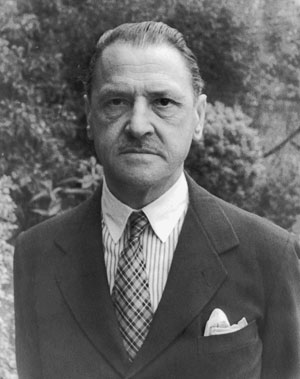Famous Contributors: W. Somerset Maugham
W. Somerset Maugham (1874-1965) was arguably the most popular author of his era. Maugham wrote more than 10 pieces for the Post, including “We Have Been Betrayed,” which appeared in the Dec. 28, 1940, issue [see PDF below].
Maugham’s talent was influenced by two important experiences from his youth. The first being that when he was young, both of his parents died, and he was sent from his home in Paris to live with an uncle in England. Maugham also had a severe stuttering problem and was bullied at school, which contributed to a fear of speaking. These factors led him to suppress his emotions.
On the other hand, as a medical student in college, Maugham was exposed to mankind’s rawest emotions while seeing the sick and dying at the hospital. This divide between no emotion and pure, unbridled emotion characterized much of his work.
When World War I broke out, Maugham used his medical skills to become an ambulance driver, alongside other notable writers of his day such as Ernest Hemingway and E.E. Cummings.
He also proved to be a good intelligence agent. In 1915, Maugham published his first novel, Of Human Bondage, and an intelligence official suggested that his language skills would make him a perfect fit for the SIS—Britain’s Secret Intelligence Service—and his career as a writer would provide a great cover. While posing as a writer (himself), he gathered information for the Allies during the war. This experience in espionage led him to write Ashenden: Or the British Agent, which is considered to be the first modern spy story.
The Classic Books of America, by W. Somerset Maugham
This week, rather than fiction or poetry, we offer a 1940 appraisal of American literature by Somerset Maugham.
The noted English author comments on a few of the Big Names in American letters. As always, his writing is rewarding and highly readable. He deflates Henry James but says all the right things about Mark Twain. He is surprisingly cool to Hawthorne, inexplicably excited about Melville, and very helpful about Whitman (“Leaves of Grass is a book to open anywhere and read as long as it pleases and then turn the pages and start at random elsewhere.”)
Read “The Classic Books of America” by W. Somerset Maugham.” Published January 6, 1940. [PDF]
